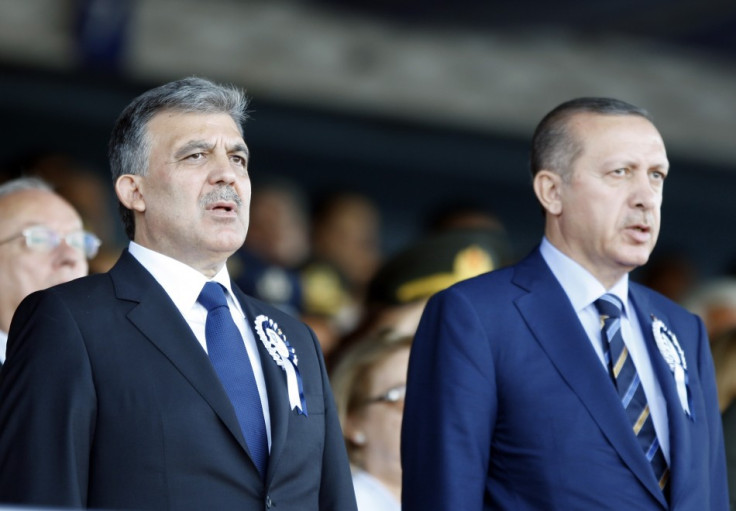Turkish Protests Highlight AKP's Power Struggle between Gül and Erdoğan [BLOG]
Is Turkey's President Abdullah Gül a ray of hope for pro-democracy activists?

While Turkey holds its breath while fresh clashes erupt in Taksim Square, a subtler struggle for power is taking place in the Cankaya Palace, the official residence of the Turkish presidency.
There, a silent but increasingly powerful figure within the ranks of the Justice and Development Party (AKP) is gradually opposing the prime minister's obstinate one-man rule.
Speculation on tensions between President Abdullah Gül and Recep Tayyip Erdoğan have been circulating for some time but the nationwide demonstrations have seen the already-strained relations between the two men deteriorating to open hostility.
As members of the core group which founded the AKP in the early 2000s, Erdoğan and Gül have been longtime political partners "bound by the law of brotherhood", as the prime minister said in 2012.
They stood shoulder to shoulder from the party's early days through Erdoğan's ban from public life in 2002, when Gül briefly held the prime ministerial post.
How to explain their dramatic split during such a turbulent time?
Although little differentiates the two in terms of ideological beliefs, they have always shown profound differences in their political personas.
Born and raised in the poor neighbourhood of Kasımpaşa in Istanbul, Erdoğan have always been referred to by the Turkish public as "bizden biri" ["one of us"]. His blunt words and unpolished manners have always been in stark contrast to Gül's calm behaviour and conciliatory tones.
While the president is well aware of not being able to compete with the prime minister's emotional appeal to the public, he has clearly shown that he cannot sit back and watch while violence spirals with no signs of let-up.
Political experience told him the right moment to pop out from behind the scenes and react to Erdoğan's dangerous hard line on demonstrators.
"In Turkey the thoughts and beliefs of everyone are respected," said Gül, an hour after the prime minister's departure for an official trip to North Africa. "We live in an open society and we have to be respectful of different ideas".
While Erdoğan was out of the country, the president engaged in an active round of discussions with key political personalities such as the deputy prime minister Bulent Arinc and the Kurdish politician Sirri Sureya Onder who had been injured during the clashes.
Arinc, in a surprising statement made right after the meeting, apologised for police brutality.
While there is no evidence that Erdoğan's leadership within the Justice and Development party is being tested by Gül, it is less certain if their rivalry threatens the prime minister's ambition of becoming president with more powers along the lines of the French model.
According to the daily Hurriyet, Gül's supporters have reported that Gül himself is against a strengthened presidential system, fearing that it could open the door to greater authoritarianism.
Might this opposition hamper Erdoğan's efforts in reforming the constitution before the 2014 presidential elections? If there is no reconciliation, might Gül decide to challenge the prime minister for the presidency?
International attention is increasingly focusing on Gül's conciliatory tones to be reassured that Turkey is not sliding towards authoritarianism.
"If there are different opinions, different points of view, there is nothing more natural than being able to voice these differences", said Gül. Hopefully, the prime minister will take that into account.
While clashes continue and the nightmare of a civil war remains in the wings, the Turkish president is a ray of hope for all those who believe that democracy is still not dead in Turkey.
Emanuela Pergolizzi is an expert in Turkish affairs. She has published an essay entitled "AKP foreign policy: a 'neo' or 'post' Ottoman recap?". From 2013 she covered the peace process between the Turkish government and Kurdish jailed leader Abdullah Ocalan. She writes for Osservatorio Iraq andResetdoc.
READ:
Turkey Protests: Erdogan's Government No Longer Legitimate [BLOG]
© Copyright IBTimes 2025. All rights reserved.





















